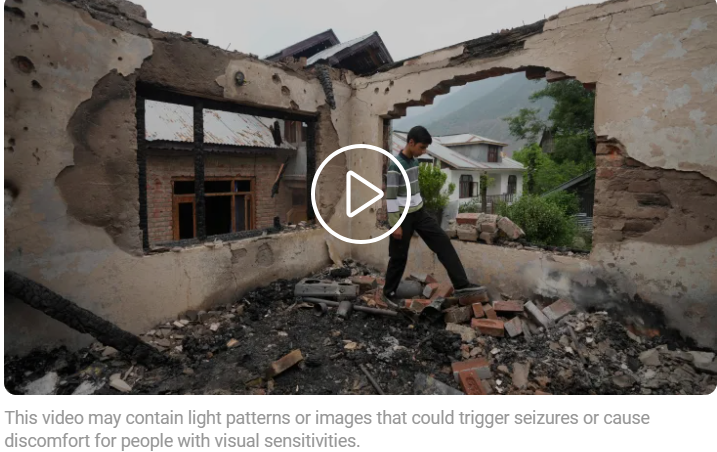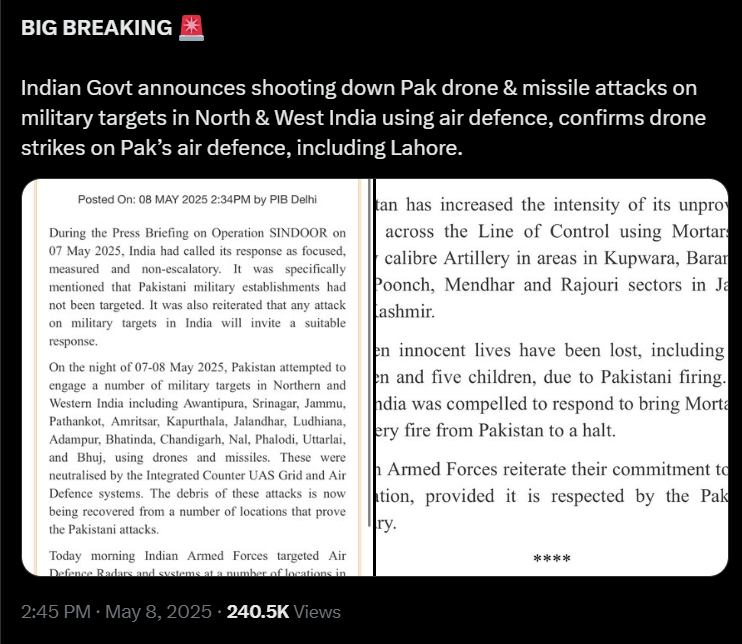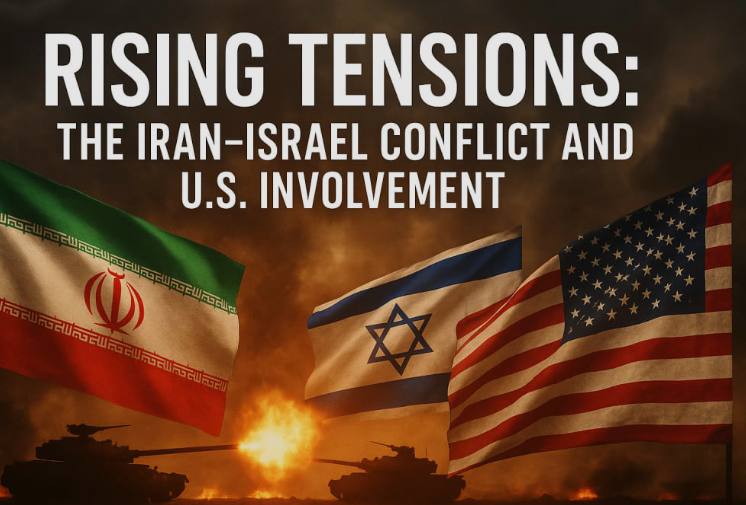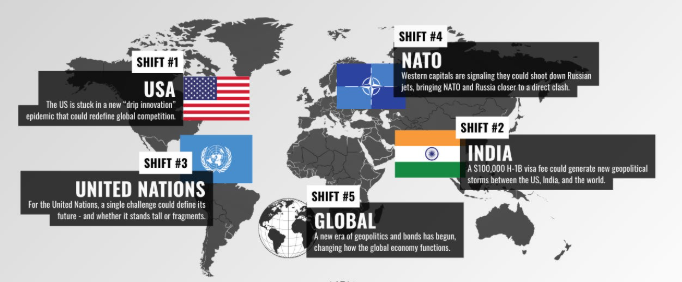May 2025 has exploded onto the geopolitical stage with high-tech, low-noise warfare — as a series of precise and powerful drone attacks in Pakistan have ignited speculation, fear, and furious debate. The subcontinent watches with bated breath, as whispers of retaliation echo, and India’s silent strategy stuns even its critics.
🎯 The Drone War Nobody Saw Coming: What Happened in Pakistan?
Over the past month, Pakistan has been rocked by a chilling series of drone attacks. Unlike traditional air strikes or ground skirmishes, these incidents came silently, precisely, and strategically. The affected regions include:
- Balochistan: A large blast occurred near a sensitive military logistics hub.
- Khyber Pakhtunkhwa: A top insurgent leader was reportedly “neutralized” by a drone.
- Pakistan-Occupied Kashmir (PoK): Multiple drone sightings and explosions near LoC.
These attacks were surgical — targeting militant hideouts, arms stockpiles, and terror training camps with almost no civilian casualties. Pakistan’s air defense seemed clueless, scrambling jets after the drones had left. A true demonstration of 21st-century warfare.
🚨 Pakistan on Edge: Denials, Confusion & Empty Threats:DRONE ATTACKS IN PAKISTAN
Islamabad’s initial reaction? Denial. Followed by accusations. Then, the usual “foreign hand” blame game. While the Pakistani government vaguely condemned the attacks, no concrete evidence or counterstrike followed.
A spokesperson from Pakistan’s ISPR stated:
“We are investigating the origin of these drone attacks. All possibilities are being considered.”
Translation? They have no clue — and it shows. Analysts across South Asia agree: Pakistan’s conventional defenses are unequipped to handle modern aerial threats, especially those originating from AI-powered stealth drones.
🇮🇳 Did India Strike? The Art of Saying Everything Without Saying Anything
India hasn’t officially claimed responsibility. But there’s a silence that speaks volumes.
Senior Indian military officials have repeatedly hinted that cross-border terrorism will no longer go unanswered. In 2019, the world saw India’s bold airstrike on Balakot. Today, the game has changed.
“The era of conventional war is over. Modern India retaliates with precision,” noted a retired Indian General.
This time, there’s no airbase footage, no troop movement, no televised bravado. Just quiet, calculated elimination — drone by drone.
🛰️ India’s Drone Might: A Technological Superiority Pakistan Can’t Match
India’s drone capabilities have surged in recent years. Through DRDO advancements, collaborations with Israel, and US tech transfers, India has built a formidable UAV force.
India’s Key Drone Arsenal:
- Heron TP (Israel): Long-endurance reconnaissance and strike drone.
- Rustom II (India): Armed, medium-altitude drone for real-time combat ops.
- Switch UAVs: Lightweight kamikaze drones for surgical hits.
- AI-Powered Swarm Drones: Hundreds of small drones that operate as one unit.
Compare this with Pakistan’s Chinese-imported UAVs, and the technological gap becomes embarrassingly clear.
💣 What Were The Targets? Surgical Strikes with Political Precision
From defense insiders and ground reports, here’s what appears to have been hit:
- Militant Safehouses in tribal areas used by Jaish-e-Mohammed and LeT.
- PoK training camps often linked to cross-border infiltrations.
- Military warehouses storing advanced weaponry meant for proxy groups.
- Insurgent networks in Balochistan allegedly aiding anti-India operations.
The message? India will no longer tolerate cross-border terrorism — and it doesn’t need to send troops to prove it.
🌍 Global Reaction: Quiet Approval, Strategic Silence
Notably, no major global power has condemned the attacks. Why?
- United States: Shares intelligence ties with India, especially on anti-terror ops.
- Israel: Likely provided tech support and strategic insights.
- European Union: Prefers India’s rise as a stable counterweight in Asia.
Even Russia, despite Pakistan’s closeness in recent times, has steered clear of comment. It seems like the world is not just watching — it’s secretly cheering.
🧠 Strategic Shift: From Retaliation to Pre-emption
These drone attacks mark a critical strategic evolution in Indian military doctrine:
- From reactive to proactive.
- From visible aggression to covert precision.
- From boots on ground to bots in air.
Gone are the days of “wait and watch.” Today, India is redefining modern warfare, using intelligence, drones, and technology to do what tanks once did.
📊 Public Pulse: Indian Citizens Applaud The New Warfare
From Twitter to newsrooms, Indian citizens have largely welcomed the new approach.
Trending Hashtags:
- #DroneRevenge
- #StrikeSilently
- #NoSafeHavens
- #IndiaStrikes
A popular comment reads:
“Why risk our soldiers’ lives when our drones can do the job better?”
The sentiment is clear — the Indian public trusts its armed forces, and they love the low-risk, high-impact nature of these drone strikes.
⚔️ India Pakistan War: A Digital Battlefield in the Making?
While an all-out India Pakistan war is unlikely — especially with nuclear deterrents in place — a shadow war is undeniably brewing.
- Covert ops.
- Drone strikes.
- Cyber intrusions.
- AI-led surveillance.
This isn’t a war of soldiers. It’s a war of codes, coordinates, and chips — and India appears to be playing four moves ahead.
🧩 Why Pakistan Can’t Respond: Military Weakness Exposed
Despite their usual chest-thumping, Pakistan’s lack of action post-strikes shows:
- Airspace vulnerability.
- Poor counter-drone tech.
- Low international support.
- Fragile economy unable to sustain conflict.
It’s a geopolitical checkmate — and Pakistan knows it.
🔮 What Next? India’s Drone Diplomacy & Global Ascent
India’s successful silent campaign will likely bolster its global standing. As it eyes a permanent seat in the UN Security Council and deepens QUAD ties, these strikes may serve as:
- Proof of technological readiness.
- A deterrent to hostile neighbors.
- An assurance to allies about India’s proactive anti-terror stance.
📚 FAQs – DRONE ATTACKS IN PAKISTAN
❓ Who is behind the recent drone attacks in Pakistan?
No official claim has been made, but many experts and defense insiders believe India may be involved, given the precision and nature of the targets.
❓ What areas were targeted in Pakistan?
Key regions include Balochistan, Khyber Pakhtunkhwa, and Pakistan-Occupied Kashmir (PoK), mostly focused on terror networks and military supply hubs.
❓ Are these attacks a sign of war between India and Pakistan?
Not a conventional war, but part of a rising asymmetric warfare strategy using technology and precision instead of open confrontation.
❓ How is India benefiting from these drone operations?
By eliminating threats with minimal risk, India is asserting power, deterring terrorism, and signaling global readiness in next-gen warfare.
❓ Why hasn’t Pakistan retaliated?
Pakistan lacks the drone capabilities and international backing. Its outdated air defense systems are no match for AI-powered Indian UAVs.
📌 Summary
Drone attacks in Pakistan have rattled the region, hitting key terror hubs and military assets. While India remains silent, strategic experts believe this marks a turning point in India Pakistan conflict, with modern drones rewriting warfare rules and geopolitical equations.
🔥 Final Take: A New Era of Warfare Begins — And India Is Leading It
These drone attacks in Pakistan are not just a tactical maneuver — they’re a strategic doctrine, a global message, and a technological revolution.
India is no longer waiting for provocations to respond — it’s taking the fight to the enemies’ doorstep, using intelligence, innovation, and invisibility.
The battlefield has changed. The message is clear. India has arrived — and it’s armed with drones, data, and dominance.

















